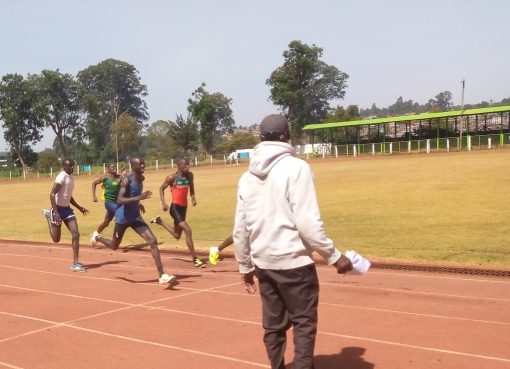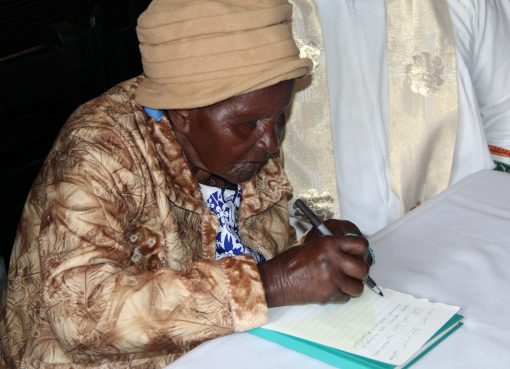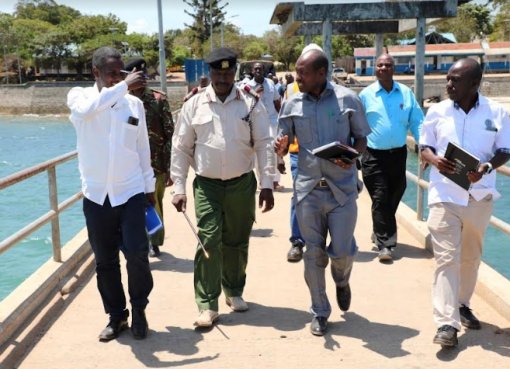As the Kenya Kwanza Government marks exactly two years in office, today, the spotlight is on the substantive progress achieved across the bottom-up economic transformation agenda(BETA) pillars.
Government Spokesperson Dr Isaac Mwaura, outlined the key accomplishments that have shaped the nation’s economic and social landscape, offering a comprehensive scorecard of the administration’s achievements.
“Agriculture is the backbone of Kenya’s economy and a core pillar of our BETA plan. The sector contributes 25 percent to the GDP and supports an additional 27 percent through manufacturing while employing about 40 percent of the population,” Mwaura stated.
With food accounting for 54 percent of household expenditures in Kenya, the government has prioritised agricultural production in a move that is geared towards bringing down the cost of living.
These reforms, he said, emphasise shifting from consumption to production subsidies, coupled with enhanced value addition that is meant to absorb the surplus and increase farmers’ income.
“Our goals are to lower farm input costs, increase farmers’ incomes, and boost productivity through value addition,” Mwaura explained, highlighting key achievements brought about by the Fertiliser Subsidy Programme among other initiatives to strengthen agricultural value chains.
“Our digital platform has registered 6.15 million farmers, enabling the distribution of low-cost fertilizer,” Mwaura said adding that fertiliser distribution increased from 1.4 million bags in 2022 to 8.6 million in 2024, with costs per bag dropping from Sh6,000 to Sh2,500.
Other sectoral successes, the Spokesperson boasted, include a 15.8 percent increase in smallholder tea farmer earnings due to VAT removal and MSME support, an 8.3 percent rise in sunflower acreage through seed distribution, and a 30 percent boost in leather industry processing capacity.
The dairy sector saw a 35 percent increase in milk prices and a 13 percent rise in production. Paddy rice and milled rice production, he added, grew by 19 percent and 14 percent, respectively, while cotton cultivation expanded by 332 percent through seed and pesticide distribution.
These efforts have significantly improved productivity, reduced costs, and enhanced farmer incomes, contributing to broader socio-economic transformation. The impact of these agricultural policies is further underscored by Kenya’s recent achievement of becoming the second-largest global exporter of tea, highlighting the success of the government’s approach in elevating Kenya’s position in international markets.
The Kenya Kwanza regime that took over office on September 13, 2022 also promised to deliver on over 250, 000 affordable housing units annually, with 112,405 units already under development in various parts of the country.
“The housing project is so promising with already 160,000 jobs for both skilled and non-skilled workers generated. A fund of Sh4.4 billion has also been allocated to MSMEs, and mortgage refinances with 213 Jua Kali artisans engaged on the programme, having been certified through prior learning assessments,” Mwaura noted in his address to the nation this morning.
MSME sector, employing 85 percent portion of Kenya’s workforce, has received considerable government support, with the refurbishment and equipping of 21 County Industrial Development Centres (CIDs), being essential in providing spaces to the MSMEs.
“The Leather Value Chains in Suneka and Isiolo South; the textile Value Chains in Mwea, Kitale and Olkalau; as well as the Edible Oils Value Chains in Kangema, Othaya, and Londiani, stand as examples of the active centres we have around the country,” he added.
On health care, he added that, “Our commitment to universal healthcare is reflected in the establishment of the Social Health Authority and the expansion of health infrastructure.
Mwaura noted that the engagement of Community Health Promoters, at a Sh2,500 stipends monthly, was crucial to the rollout of the expanded universal health care in addition to the newly constructed health facilities.
“Our investments in digital technology have set the stage for a more connected and innovative Kenya. A 111 percent increase in fiber optic cable installation and the creation of 274 Digital Hubs, have significantly enhanced digital connectivity and job opportunities.
These achievements reflect the government’s commitment to improving digital connectivity and service delivery across Kenya,” Mwaura added.
By Rose Chepkoech





